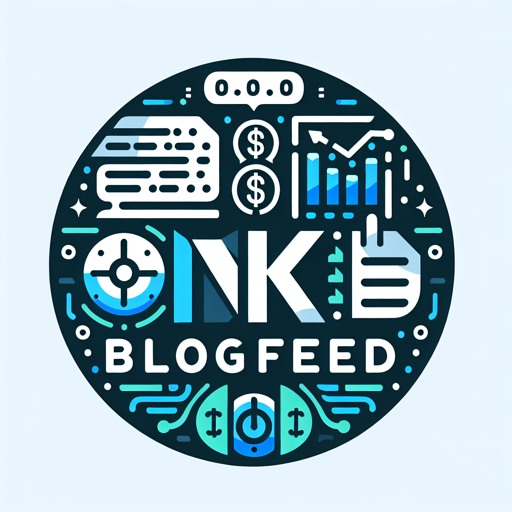In today’s fast-paced world, individuals are often bombarded with choices that demand their attention, leading to a phenomenon known as decision fatigue. This state of mental exhaustion can significantly impact one’s ability to make effective decisions throughout the day. The good news is that by understanding how decision fatigue affects us and learning strategies to combat it, we can reclaim our mental clarity and improve our overall well-being.
What is Decision Fatigue and How Does It Affect You?
Understanding the Concept of Decision Fatigue
Decision fatigue is a psychological phenomenon that occurs when an individual is faced with making too many decisions over a period of time, leading to a decline in their ability to make sound choices. This mental fatigue results from the depletion of mental energy required to weigh options, consider outcomes, and finalize a choice. When we experience decision fatigue, even the most straightforward decisions seem daunting, and our capacity to make even the simplest kind of decision is impaired. This condition often leads to impulsive or poorly thought-out decisions, significantly affecting our personal and professional lives.
Common Symptoms of Decision Fatigue
Recognizing the symptoms of decision fatigue is crucial to addressing it effectively. Common signs include feeling overwhelmed by the number of decisions you have to make, experiencing mental fatigue, and finding it challenging to make even easy decisions. Individuals may also notice a tendency towards procrastination or an increase in impulsive choices as their mental reserves dwindle. These symptoms collectively indicate that one’s decision-making faculties are overtaxed, and without intervention, they can lead to more severe emotional fatigue and stress.
The Impact of Decision Fatigue on Your Daily Life
The effects of decision fatigue on daily life can be profound. As decision-making becomes more taxing, individuals may struggle to maintain productivity throughout a long day, often feeling drained and unable to focus on important tasks. This can result in a decreased ability to make better decisions, negatively impacting personal relationships and work performance. Moreover, the accumulated stress from making too many decisions can exacerbate mental fatigue, creating a cycle that is challenging to break without intentional efforts to manage one’s cognitive load.
How Can You Overcome Decision Fatigue?
Ways to Overcome Decision Fatigue Effectively
Overcoming decision fatigue involves implementing strategies that help manage the cognitive burden associated with decision-making. One effective approach is to prioritize decisions, focusing on the most important ones when mental energy is at its peak. Establishing a daily routine can also minimize the effort required to make decisions, as it reduces the number of decisions you make each day. Additionally, setting boundaries and simplifying choices can greatly aid in conserving mental resources, allowing for more deliberate and thoughtful decision-making.
The Role of a Consistent Daily Routine in Battling Fatigue
A consistent daily routine plays a pivotal role in combating decision fatigue by creating a structured environment where many decisions are predetermined. By reducing the number of decisions required each day, individuals can conserve mental energy for more critical tasks. This routine not only simplifies daily life but also provides a sense of stability and predictability, which can alleviate the stress associated with making too many decisions. Furthermore, routines help in forming habits that minimize mental fatigue, allowing individuals to seamlessly navigate their day without feeling overwhelmed.
Benefits of Mindfulness in the Decision-Making Process
Incorporating mindfulness into the decision-making process can significantly alleviate the effects of decision fatigue. Mindfulness encourages individuals to be present and deliberate, helping them to better evaluate options and outcomes without becoming overwhelmed. This practice aids in honing one’s ability to make better decisions by fostering a calm and focused mental state. Engaging in mindfulness exercises regularly can strengthen mental clarity, reduce emotional fatigue, and improve overall cognitive functioning, making it easier to navigate the complexities of daily decision-making challenges.
How to Delegate Decisions to Manage Decision Fatigue
Why It’s Important to Delegate Decisions
Delegating decisions is a crucial strategy for managing decision fatigue, as it allows individuals to distribute the cognitive load associated with making numerous choices. By entrusting others with certain decisions, one can conserve mental energy for more significant or complex decisions that require their direct attention. This delegation not only reduces the burden of decision-making but also encourages a collaborative environment where team members are empowered to contribute and take responsibility. Ultimately, this approach enhances overall efficiency and ensures that critical decisions are made with greater precision and thoughtfulness.
Effective Strategies to Delegate Decisions Successfully
To delegate decisions effectively, it is essential to establish clear guidelines and communicate expectations to those taking on decision-making responsibilities. Providing context and necessary information ensures that delegated decisions align with overall goals and objectives. Additionally, fostering a culture of trust and accountability encourages individuals to feel confident in their roles, leading to more effective delegation. Regular check-ins and feedback sessions can further enhance the delegation process, ensuring that decisions are made efficiently and effectively, ultimately reducing the decision-maker’s cognitive load.
Overcoming the Fear of Letting Go
One of the most significant barriers to delegating decisions is the fear of letting go and relinquishing control. Overcoming this fear requires a shift in mindset, recognizing that delegating can lead to more effective decision-making by allowing others to contribute their expertise and perspectives. Building trust in the capabilities of others is critical, as is understanding that letting go does not mean losing influence but rather optimizing the decision-making process. Embracing delegation as a strategic tool can empower individuals to focus on high-priority tasks that genuinely require their attention, thus alleviating decision fatigue.
How Does a Structured Routine Help in Reducing Decision Fatigue?
Creating a Routine to Simplify Daily Tasks
Creating a structured routine is instrumental in simplifying daily tasks and reducing decision fatigue. By establishing a set schedule, individuals can automate many decisions, freeing up mental resources for more significant challenges. A routine provides a predictable framework that minimizes the number of decisions required each day, allowing individuals to focus on tasks that truly need their attention. This structure also fosters consistency and efficiency, making it easier to maintain productivity and navigate daily responsibilities without feeling overwhelmed by the constant need to make choices.
How to Reduce the Number of Decisions You Make Daily
Reducing the number of decisions you make daily is key to managing decision fatigue. One effective strategy is to prioritize decisions, addressing the most critical ones first and deferring or eliminating less important choices. Streamlining processes and eliminating unnecessary options can further alleviate the decision-making burden. Additionally, adopting habits such as meal planning, setting a fixed wardrobe, and scheduling regular tasks can significantly decrease the cognitive load associated with routine decisions, allowing individuals to conserve mental energy for more important decisions.
Building Habits to Minimize Mental Fatigue
Building habits is a powerful way to minimize mental fatigue and reduce decision fatigue. Habits automate behaviors, reducing the need for conscious decision-making and preserving mental energy for more critical tasks. By cultivating routines that incorporate healthy lifestyle practices, individuals can enhance their ability to make better decisions and maintain mental clarity throughout the day. Establishing habits such as regular exercise, adequate sleep, and mindful eating also contributes to overall well-being, supporting cognitive function and resilience against the demands of daily life.
What Are the Long-term Benefits of Managing Decision Fatigue?
Enhancing Your Ability to Make Better Decisions
Managing decision fatigue offers long-term benefits that enhance one’s ability to make better decisions. By reducing the cognitive load associated with decision-making, individuals can approach choices with greater clarity and focus. This improved decision-making capacity leads to more thoughtful and deliberate outcomes, positively impacting both personal and professional aspects of life. Over time, the skills developed in managing decision fatigue can foster greater confidence and competence in navigating complex situations, ultimately leading to more successful and fulfilling experiences.
Improving Mental Clarity and Reducing Emotional Fatigue
One of the most significant long-term benefits of managing decision fatigue is the improvement in mental clarity and reduction of emotional fatigue. By implementing strategies to streamline decision-making, individuals can maintain a clear and focused mind, better equipped to handle daily challenges. This clarity reduces stress and emotional exhaustion, allowing individuals to approach tasks with renewed energy and enthusiasm. Ultimately, improved mental clarity enhances overall well-being, enabling individuals to enjoy a more balanced and fulfilling life.
Maintaining Productivity Over a Long Day
Effectively managing decision fatigue is crucial for maintaining productivity over a long day. By minimizing the cognitive demands associated with decision-making, individuals can sustain their energy and focus on tasks that require their attention. This sustained productivity not only improves performance but also contributes to a sense of accomplishment and satisfaction. As decision fatigue is managed, individuals find themselves better equipped to tackle the demands of their day, leading to more efficient and successful outcomes in both personal and professional arenas.

